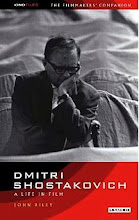The Round-Up (1965)
SzegénylegényekIn the late 1960s and early 1970s Miklós Jancsó was up there with Fassbinder, Godard, Fellini and others – the giants of international cinema. Now, many of those directors are dead but Jancsó, born in 1921, is still alive – and indeed still working, though in a very different style – yet his international reputation is much lower. Formally and visually, if not thematically, Béla Tarr would be inconceivable without Jancsó, while István Szabó points to his crucial role in developing a distinctive 'Hungarian' cinema. Both are happy to acknowledge the debt.

Pronounced, roughly, Miklosh Yansho, with the stresses on the initial syllables, he began by making what he frankly dismisses as propaganda, but from which he learned the mechanics of film-making. After a couple of false starts,
My Way Home (
Igy jöttem, 1964), set during the Second World War, was his first notable feature. It also began a series of contemplations of Hungary’s tragic history.
For
The Round-Up he moved backwards to the late 1860s and the aftermath of the abortive 1848 anti-Habsburg uprising. A group of men are held at an isolated stockade and interrogated, humiliated, and physically and psychologically tortured to persuade them to betray the rebels amongst them. Less than a decade after the terrible events of 1956 the parallels were clear though Jancsó stresses that there isn’t a one-to-one relationship between the two events: certainly
The Round Up is a condemnation of the Russian invasion, but it has as much to say about repression under any regime. Indeed, the use of psychological torture to weed out ‘terrorists’ - a recurring theme in Jancsó’s work, is still a current concern.
In the Russian Civil War story,
The Red and the White (
Csillagosok, katonák, 1967) the relative morality of the two sides is muddied and it was unsurprisingly banned in the USSR, while
The Confrontation (Fényes szelek, 1969) and
Red Palm (
Még kér a nép, 1971) are further a bleak views of humiliation and threats used on powerless individuals. In fact
Szegénlegények actually translates not as
The Round-Up, but
The Hopeless Ones.
These five films, made over six years mark Jancsó’s highwater mark but
The Round-Up is probably his best-known.

Every epic widescreen shot of this highly choreographed film has an Antonioni-like formal beauty, which keeps the intense emotions (just) in check until the awful final scenes. There’s an almost balletic quality to the movement of the actors and the camera, and Jancsó's then-trademark long-takes rack up the tension and, paradoxically, the beauty. Some see him as more of a formalist than a psychological film-maker but we can't miss how, forced into mutual betrayals, characters struggle to avoid facing each other.
For a film that is about capture and imprisonment, the frequent glimpses of the wide Hungarian plain – the
puszta - are a bitter taunt to the rebels, but that very open-ness is itself dangerous.

There is nowhere to hide, just as the interrogation implacably bypasses the prisoners’ prevarications. There’s a Fordian fascination with doorways, ironically pointing to the hopelessness of escape, as in Ethan's final departure into his own lonely world in
The Searchers.The sense of restraint - or repression - is intensified by the minimal dialogue, restricted to the most basic question and answers, and peremptorily barked out orders. Similarly, with one exception, the only music occurs when the men sing or a brass band arrives, ironically oompah-ing the Empire's success.
One oddity is that the British release print of
The Round-Up had a different prologue: a scrolling text giving the historical background. What originally appeared was a series of exquisite line drawings of weapons, Hungarian scenes, agricultural tools and the regime’s instruments of torture under a spoken text which sets the scene and the Emperor’s Hymn (“Deutschland, Deutschland, über Alles”), bitterly underlining the presence of an occupying force. This original version is what appears on the excellent Second Run DVD. Still, as Second Run’s Mehelli Modi says: the chance to see this masterpiece on the screen shouldn’t be passed up.
The Round-Up is being shown at the
Barbican on 28 April 2008.
It's available along with other Jancsó films, from
Second Run DVD.





